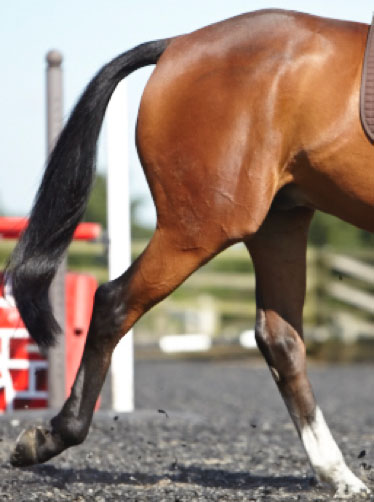Why are they so prevalent today?

Competition horses seem to be more and more frequently referred with proximal suspensory ligament desmitis, i.e. degeneration of the ligament fibres that attach to the hock.
Shockwave therapy is a prominent treatment provided by the vets.
Shockwave was originally developed as a treatment to produce a haematoma to help reattach ligament injuries that were a detachment.
However, nowadays they use shockwave on a lower frequency to stimulate the body to heal the damaged fibres in the ligament.
Often horses are referred straight away to veterinary hospitals for de-nerving.
In brief, this is because when there is inflammation in the suspensory ligament, pressure can be applied to the nerve that runs in the small channel at the back of the cannon bone.
This is very effective at removing the pain (obvious as de-nerving the area) but we must remember there are consequences to this action.
It is my belief that the cause of suspensory problems is vital to making the right decision. This is why I like to have routine appointments with competition horses and to assess them on a regular basis to observe changes in their gait
I also believe that back and sacroiliac problems also put more pressure on the suspensory ligaments as they adapt their gait to avoid using their backs properly.
We then have a ‘chicken and egg’ scenario. What comes first? Back problems or suspensory problems?
This is why assessing horses on a regular basis is vital to attempt to offset problems and degenerative conditions.
I am passionate about getting horses to use themselves to their best ability and help them to keep sound.
Being off work can change a horses posture and therefore allow the spinous processes to become close.




